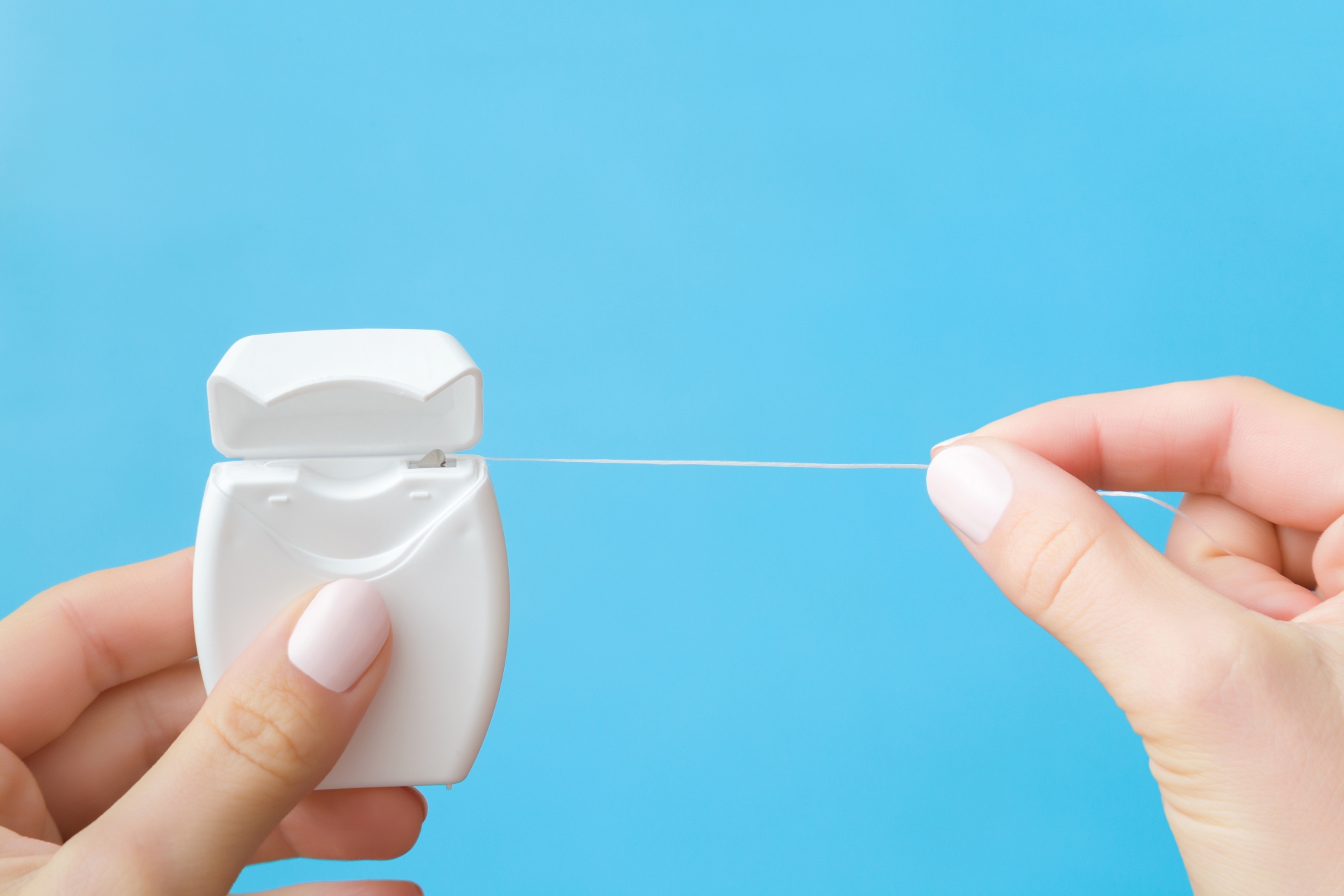Oral Health at Work: Boosting Health and Productivity

Employee well-being is a hot topic in today's modern work environment. Awareness of well-being not only has a positive impact on employee productivity, job satisfaction, and overall organizational success, but it’s also a significant contributor to the promotion of a healthy work-life balance. Historically, dental work is often ignored, with employers primarily focusing on other medical aspects of well-being, such as employee mental health. However, dental health at work plays a significant role in employees' general productivity and their personal well-being. Dental problems like cavities or gum disease can cause both physical pain and psychological stress, which can limit an employee's ability to do their best work. Employers who want to foster a work environment that prioritizes the general well-being of their employees must understand the connection between oral health at work and productivity, and should establish oral hygiene initiatives that prioritize the holistic well-being of their employees, their productivity, and their long-term success.
In this article, we’ll explore the importance of oral health at work and how oral hygiene initiatives into wellness programs can be implemented in the workplace, touching upon how oral health at work is fundamental for both individual well-being, overall productivity, and the development of a positive professional image. We’ll round out the article with practical dental hygiene tips that employers can give their employees.
Why is Oral Hygiene Important in the Workplace?
Good oral hygiene at work has a direct impact on workers' general health; it’s not just a personal hygiene practice. Practicing oral hygiene at work shows a commitment to an individual’s health, since having a healthy mouth affects the workplace atmosphere. Performance at work can often be affected by poor oral hygiene, bad breath, gum disease, cavities, and other dental problems, having a negative effect on a person's self-esteem. Establishing guidelines for oral hygiene at work can help to improve employee morale and performance.
How Does Oral Health Impact Overall Well-Being and Productivity?
There is a strong connection between overall health and well-being, productivity, and dental health. Chronic oral problems can aggravate systemic health conditions like diabetes, heart disease, and respiratory disorders if left untreated. In addition, dental issues can cause discomfort and pain, which can elevate stress levels and negatively impact an employee's mental health. As a result, employee productivity decreases. When employers encourage their employees' dental health at work, this helps promote an overall sense of well-being, fostering both their physical and mental well-being. The end result is increased productivity.
What is the Link Between Oral Health and Overall Health?
Oral health is closely linked to general health because dental care is an essential component of the body's systems. The growth of bacteria, infections, and inflammation affecting organs can be caused by inadequate dental care, such as not brushing regularly or visiting the dentist. By understanding this connection between general health and dental health, both employers and HR managers can foster an environment where the long-term health of their employees is given equal weight with job performance.
How Can Poor Oral Hygiene Affect Employees' Productivity and Attendance?
Poor dental hygiene can negatively contribute to employee attendance and productivity at work, making it a real concern for employers. Dental problems can be painful and uncomfortable, which makes employees more likely to miss work when they need dental care. Furthermore, the physical and mental strain that accompanies untreated oral health issues can cause a decrease in productivity. Through addressing oral health at work, employers can lessen these problems and promote a more present and healthier workforce.
The Role of Oral Hygiene in Creating a Positive Professional Image
It’s necessary to recognize the relationship between oral health and business. There is significant value in creating a positive image, both professionally and personally, with oral hygiene being an essential component of personal grooming and presentation. Employees who maintain good dental health project professionalism and confidence, which enhances their own and the company's image. A healthy workforce positively impacts the vitality and success of the entire organization, leaving a positive impression on partners, customers, and coworkers.

How Does Good Oral Hygiene Contribute to an Individual's Confidence in the Workplace?
The saying goes, “You never get a second chance to make a first impression,” and this is particularly true when it comes to good oral hygiene. A healthy smile can increase one's self-confidence tremendously. People who practice good oral hygiene are more likely to be comfortable in social situations, including meetings, presentations, and casual conversations. At work, confidence can lead to improved leadership abilities, successful communication, and a general improvement in team dynamics.
The Impact of Good Oral Health on Employee Morale and Job Satisfaction
Job satisfaction and employee morale are essential components of a successful workplace. Anxiety, pain, and self-consciousness brought on by poor dental health can decrease mood and motivation. On the other hand, workers who maintain good dental health practices are more likely to feel content and satisfied at work. Understanding how oral health affects these important variables can help employers establish a culture in the workplace where employees' overall health is given priority as part of their holistic health plan.
How Can a Healthy Workforce Positively Affect the Overall Workplace Environment?
As outlined above, there are various ways in which a healthy workforce enhances a positive work environment. Employee efficiency increases as productivity rises and absenteeism declines. A focus on employee health also promotes a culture of care and well-being, which strengthens team loyalty and cohesion to the employer. Establishing a work environment that prioritizes and supports dental health can be a key element in establishing a company’s reputation for its dedication to employee well-being.
Dental Hygiene Tips at Work
By now, we know that maintaining good dental hygiene at work is critical for overall health, well-being, and professional confidence. Here are some practical dental hygiene tips for work that employees can incorporate into their daily work routine:
- Keep Dental Supplies Handy: Keep a dental kit with the essentials nearby in your desk or bag for easy access. This includes a toothbrush, toothpaste, dental floss, and mouthwash.
- Regular Brushing: Remember to brush your teeth after meals. Aim to brush for at least two minutes using fluoride toothpaste to help prevent cavities.
- Flossing: Follow up your brushing with dental floss or interdental brushes to clean between your teeth, removing plaque and preventing gum disease.
- Use a Mouthwash: Incorporate an alcohol-free, antimicrobial mouthwash into your dental routine to reduce bacteria and freshen breath.
- Stay Hydrated: Drink plenty of water throughout the day. Water helps rinse away food particles and bacteria that can lead to plaque and bad breath.
- Chew Sugar-Free Gum: Chewing sugar-free gum can stimulate saliva production, which helps neutralize acids and maintain a healthy pH level in the mouth.
- Limit Sugary Snacks: Minimize the consumption of sugary snacks and beverages, as they can contribute to tooth decay and cavities.
- Avoid Excessive Coffee and Tea: Coffee and tea can stain teeth. If you do drink them regularly, remember to rinse your mouth with water afterward to help minimize staining.
- Regular Dental Check-Ups: Use your breaks to schedule regular dental check-ups so you can catch any potential issues early and maintain optimal oral health.
- Protect Your Teeth: If your workplace involves activities that could pose a risk to your teeth, such as contact sports, consider using a mouthguard to prevent injuries.
- Mind Your Posture: Maintaining good posture while working reduces the risk of jaw pain and temporomandibular joint (TMJ) issues.
- Be Mindful of Stress: Stress can lead to teeth grinding, known as bruxism. If you notice signs of teeth grinding, such as jaw pain or headaches, consult your dentist for advice. They may often suggest a mouthguard for sleeping.
It’s essential to recognize the integral role of dental health at the workspace, influencing not only individual well-being but also contributing to a healthier and more productive professional environment.
Conclusion
Special attention should be given to oral health in office space, as it not only enhances individual well-being but also contributes to creating a healthier and more vibrant professional environment. Employers and HR managers play key roles in encouraging dental health at work because they understand how it affects employees' general well-being, productivity, and company reputation. Businesses can support the long-term health and success of their most valuable asset, their employees, by incorporating oral health at work initiatives into pre-existing workplace wellness programs. By doing so, they are offering their employees a holistic approach to their health which benefits everyone.

 Canada
Canada
 Mexico
Mexico
 Other
Other


